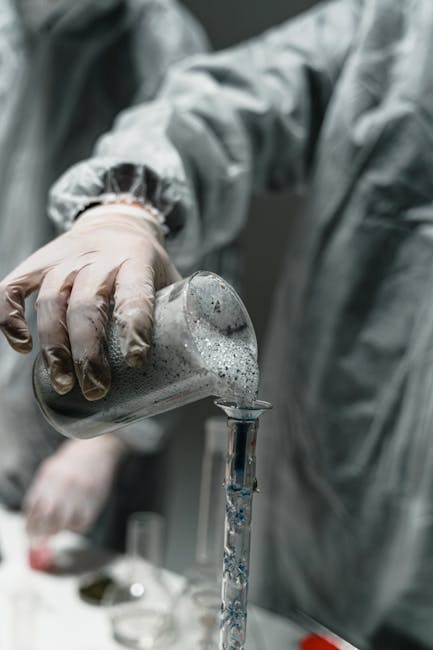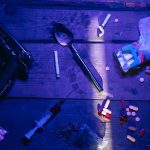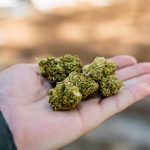
Cocaine, a powerful stimulant, has been a part of various cultures for centuries. Its history dates back to ancient civilizations in South America, where it was used for medicinal and religious purposes. However, its modern-day usage is highly regulated and often associated with illegal activities. In Prague, like many other major cities, the demand for high-quality cocaine exists, albeit in the shadows due to legal restrictions.
Understanding Cocaine
Cocaine is derived from the coca leaf and is known for its potent effects on the central nervous system. It can be found in two main forms: powder and crack. The powder form can be snorted or dissolved in water and injected, while crack cocaine is the crystallized version, usually smoked for a more immediate and intense effect. The quality of cocaine can vary significantly based on its purity and the method of production.
Prague’s Illicit Drug Market
Prague, the capital of the Czech Republic, has a vibrant nightlife and a significant tourist influx, which contributes to a demand for illicit drugs, including cocaine. The city’s drug market, like many others in Europe, is characterized by its clandestine nature, making it challenging for users to ascertain the quality and safety of the substances they purchase. Despite strict laws and enforcement efforts, cocaine remains accessible in the city, often through well-connected networks and dealers.
Trusted Standards in Illicit Markets
In the absence of legal regulation, illicit drug markets develop their own standards and signals of quality. These can range from word-of-mouth recommendations to visible signs of purity, such as the drug’s appearance and packaging. In Prague, as in other cities, certain dealers or suppliers may gain a reputation for selling high-quality cocaine, based on the drug’s purity, consistency, and the reliability of the supply chain. This reputation can be a crucial factor for users seeking to minimize health risks associated with drug use.
Risks and Considerations
While the concept of “high-quality” cocaine might imply a safer product, it’s essential to remember that cocaine use carries significant health risks, including addiction, cardiovascular problems, and respiratory issues, especially when smoked. Furthermore, the illegal nature of the drug trade means that even seemingly high-quality cocaine can be adulterated with harmful substances; Users must be aware of these risks and consider the legal implications of their actions.
Efforts to Combat Illicit Drug Trade
The Czech Republic, like many other European countries, has implemented various strategies to combat the illicit drug trade. Law enforcement agencies work tirelessly to dismantle drug trafficking networks and prosecute those involved. Additionally, public health campaigns aim to educate the population about the dangers of drug use and provide support for those struggling with addiction.
Drug Policy and Legislation
The Czech drug policy has evolved over the years, with a focus on distinguishing between drug users and drug dealers. While the possession of small amounts of drugs for personal use is decriminalized, the sale and distribution of drugs remain strictly illegal. This approach aims to reduce the burden on the criminal justice system and allow for more resources to be devoted to public health initiatives and combating organized crime.
Support for Addiction Treatment
Recognizing the importance of addressing drug addiction as a public health issue, the Czech government provides funding for various treatment programs. These include counseling services, methadone substitution programs, and residential rehabilitation centers. Such initiatives help individuals struggling with addiction to receive the support they need and work towards recovery.
International Cooperation
The fight against the illicit drug trade is a global challenge that requires international cooperation. The Czech Republic works closely with other countries and international organizations, such as the European Monitoring Centre for Drugs and Drug Addiction (EMCDDA) and the United Nations Office on Drugs and Crime (UNODC), to share intelligence, coordinate efforts, and develop effective strategies to combat drug trafficking.
Challenges in the War on Drugs
Despite efforts to curb the illicit drug trade, several challenges persist. The clandestine nature of drug markets makes it difficult for law enforcement to track and dismantle drug trafficking networks. Moreover, the high demand for drugs, coupled with the potential for significant profits, continues to attract individuals and organized crime groups into the trade.
Impact on Public Health
The availability of high-quality cocaine in Prague, as in other cities, raises concerns about public health. Cocaine use is associated with a range of health problems, including heart attacks, strokes, and respiratory issues. Furthermore, the sharing of needles and other equipment for injecting drugs can lead to the transmission of blood-borne diseases such as HIV and hepatitis.
Role of Education and Prevention
Education and prevention programs play a crucial role in reducing drug use and its associated risks. By informing the public about the dangers of drug use and providing support for those at risk, these programs can help decrease the demand for illicit drugs. Schools, community organizations, and healthcare providers are key players in this effort, offering a range of interventions from drug awareness classes to counseling services.
Technological Advances in Drug Detection
Advances in technology are being harnessed to improve drug detection and enforcement. For instance, portable drug testing devices can quickly analyze substances to identify their composition, helping law enforcement to identify and seize drugs more effectively. Additionally, digital forensics and data analysis are being used to track drug trafficking networks and predict trends in drug use and supply.
Future Directions
As the landscape of drug use and trafficking continues to evolve, it is essential for policymakers, law enforcement, and public health professionals to adapt their strategies. This might involve exploring new approaches to drug policy, such as decriminalization or legalization or focusing on harm reduction measures to minimize the health risks associated with drug use. International cooperation will remain vital in addressing the global nature of the drug trade.
The issue of high-quality cocaine in Prague reflects broader challenges in the war on drugs. While efforts to combat drug trafficking and support public health are ongoing, the complex and dynamic nature of drug markets means that new and innovative solutions are continually needed. By understanding the complexities of drug use and supply, and by working together across borders and disciplines, it may be possible to reduce the harm caused by illicit drugs and create safer, healthier communities.
For those seeking help with drug addiction, resources are available. Treatment for drug addiction can be highly effective, and support groups, counseling, and medical interventions can provide a path to recovery. It’s never too late to seek help and start a journey towards a healthier, drug-free life.
5 thoughts on “High-Quality Cocaine: Prague’s Trusted Standard”
Leave a Reply Cancel reply
You must be logged in to post a comment.




The article provides a detailed insight into the history and usage of cocaine, highlighting its cultural significance and modern-day implications.
I found it interesting how the article touches upon the clandestine nature of Prague\
The discussion on trusted standards in illicit markets is thought-provoking, as it highlights the complex networks and signals that exist despite legal restrictions.
The article raises important points about health risks associated with drug use and the importance of reputation among dealers in minimizing these risks.
The explanation of cocaine\